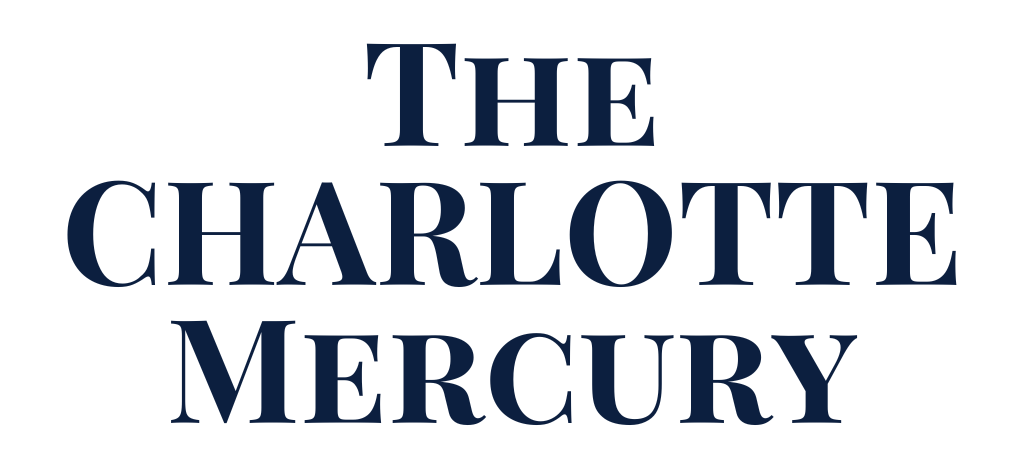
Tech, Crypto, and Tobacco Giants Bankroll Trump’s $300 Million White House Ballroom
By Jack Beckett | The Charlotte Mercury
WASHINGTON — The White House’s East Wing is coming down, and a new ballroom is going up — 90,000 square feet of marble, arches, and donor goodwill. President Donald Trump’s administration released the full list of contributors Thursday, revealing that some of America’s most powerful corporations and billionaires are footing the bill for a privately financed expansion that carries a public message: loyalty has its privileges.
Who’s Paying for the Party
Dozens of major firms and individuals are bankrolling what the administration now estimates will be a $300 million ballroom, up from an initial $200 million projection only weeks ago.
The list reads like an index of American influence:
- Tech titans: Amazon, Apple, Google, Meta, Microsoft, HP, and Palantir Technologies.
- Crypto players: Coinbase, Ripple, Tether, and the Winklevoss twins.
- Regulated heavyweights: Altria Group and Reynolds American in tobacco; Caterpillar, Lockheed Martin, and Union Pacific in industry.
- Energy and finance donors: NextEra Energy, Booz Allen Hamilton, and the Adelson Family Foundation.
Several corporate names have extensive dealings with the federal government — from defense contracts to regulatory oversight — raising eyebrows among ethics advocates who note that “private” White House projects have a long history of entanglement.
Billionaires in the Ballroom
The list also features a roll call of Trump’s personal network:
Commerce Secretary Howard Lutnick and his family; Small Business Administrator Kelly Loeffler and her husband Jeff Sprecher; Blackstone CEO Stephen Schwarzman; oil magnate Harold Hamm; investors Isaac Perlmutter and Konstantin Sokolov; Manchester United owner Edward Glazer; biotech entrepreneur Stefan Brodie; and sugar barons José and Emilia Fanjul.
Some names have complicated pasts. Brodie and his brother were convicted in 2002 for violating U.S. sanctions on Cuba. Former President Joe Biden denied their pardon request in 2023.
The Fanjuls, whose family fortune is tied to Florida’s cane fields, reportedly influenced Trump to pressure Coca-Cola to favor cane sugar over corn syrup in its production — a small policy shift with billion-dollar implications.
No Taxpayer Money — Just Influence
Trump insists that the project will not rely on public funds, framing it as a gesture of private generosity. But the donor mix underscores the porous boundary between private philanthropy and political access.
Construction crews began demolishing the East Wing on October 21, erasing decades of architectural history to make way for Trump’s vision of grandeur. The White House says the project will be finished “long before” the end of his current term in 2029.
Architectural plans show tall windows, white walls, and sweeping arches — the unmistakable Trump aesthetic. The space will accommodate 999 guests, a precise number reflecting the president’s flair for symmetry and scale.
A History of Patronage, Rebuilt in Stone
Privately funded presidential projects are not new, but Trump’s ballroom magnifies the optics of power at a time when many of the donors depend on favorable treatment from federal agencies.
Altria and Reynolds American face FDA scrutiny; Palantir and Lockheed Martin hold massive government contracts; and crypto firms are lobbying for looser regulation.
The ballroom, critics argue, is less about hospitality than hierarchy — a place where access is literally built into the floor plan.
Full Donor List (Released October 23, 2025)
Corporations:
Altria Group Inc.; Amazon; Apple; Booz Allen Hamilton Inc.; Caterpillar Inc.; Coinbase; Comcast Corporation; Hard Rock International; Google; HP Inc.; Lockheed Martin; Meta Platforms; Micron Technology; Microsoft; NextEra Energy Inc.; Palantir Technologies Inc.; Ripple; Reynolds American; T-Mobile; Tether America; Union Pacific Railroad
Foundations & Individuals:
Adelson Family Foundation; Stefan E. Brodie; Betty Wold Johnson Foundation; Charles and Marissa Cascarilla; Edward and Shari Glazer; Harold Hamm; Benjamin Leon Jr.; The Lutnick Family; The Laura & Isaac Perlmutter Foundation; Stephen A. Schwarzman; Konstantin Sokolov; Kelly Loeffler and Jeff Sprecher; Paolo Tiramani; Cameron Winklevoss; Tyler Winklevoss
Charlotte Connection
The Charlotte Mercury has followed national developments closely as part of its “Poll Dance 2025” election series, which traces how corporate influence at the top filters down to state and local policy — from campaign financing to zoning decisions. The ballroom may be in Washington, but the donor network extends deep into Mecklenburg County’s boardrooms and beyond.
About the Author
Jack Beckett is a senior writer for The Charlotte Mercury. He drinks too much coffee, pretends it’s for journalistic rigor, and files stories that make the barista nervous.
For more of our civic and investigative work, visit The Charlotte Mercury homepage, explore News, or dig into Politics.
Check out our irreverent election coverage, “Poll Dance 2025,” where we keep score so you don’t have to.
You can always message us on Twix (yes, we still call it that): x.com/queencityexp.
The Fine Print
Because every newsroom deserves a disclaimer:
Privacy Policy | About Us | Terms of Service | Media Kit | Contact Us
Creative Commons License
© 2025 The Charlotte Mercury / Strolling Ballantyne
This article, “Tech, Crypto, and Tobacco Giants Bankroll Trump’s $300 Million White House Ballroom,” by Jack Beckett is licensed under CC BY-ND 4.0.
“Tech, Crypto, and Tobacco Giants Bankroll Trump’s $300 Million White House Ballroom”
by Jack Beckett, The Charlotte Mercury (CC BY-ND 4.0)
